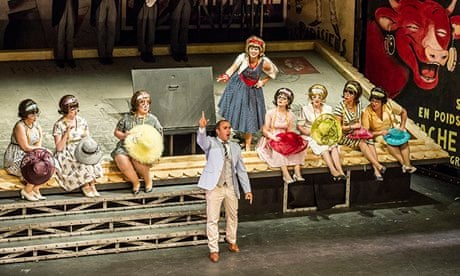Nino Rota is best known as the composer of film scores, including his outstanding contributions to Francis Ford Coppola's first two Godfather films and a whole slew of Fellini's movies. But this prolific Italian was active in the concert hall and the opera house, too, and it is his setting of the 1851 Eugène Labiche boulevard farce usually known in English as The Italian Straw Hat that opens this year's Wexford festival.
It proves a good choice. While it is relatively familiar in Italy, international productions of this most successful of Rota's 10 operas, premiered in 1955, are still unusual enough to justify a place in the Irish event's rarity-focused programme.
The plot is effectively an extended chase sequence, as groom-to-be Fadinard hares around Paris on his wedding day in search of a replacement straw hat for the one his horse has inadvertently eaten; a ridiculous situation becomes increasingly surreal as more individuals are drawn into his ever-burgeoning absurdist odyssey.
Rota finds the ideal musical match for the inconsequential plot in a score that pays delicate homage to the Italian opera buffa tradition, referring generically and occasionally specifically to pieces from Cimarosa through to Rossini and on into later musical territory; perhaps because of the Parisian setting, there's also a hint of French operetta and a soupçon of Poulenc.
To bright and breezy designs by Lorenzo Cutùli, Andrea Cigni's production emphasises the artificiality of the dramatic construct in visuals that repeatedly cross the border between mundane reality and dreamlike fantasy. Sergio Alapont's pacy conducting allows the score to dance over the footlights, while Filippo Adami's Fadinard leads a hard-working cast to success.

Comments (…)
Sign in or create your Guardian account to join the discussion